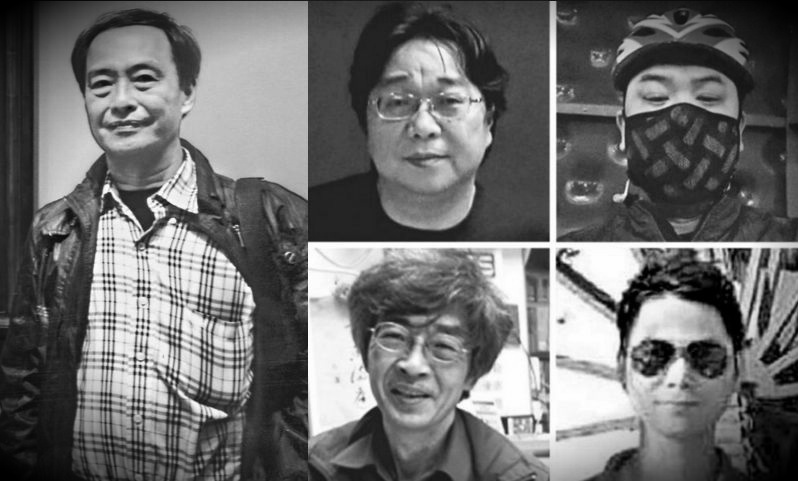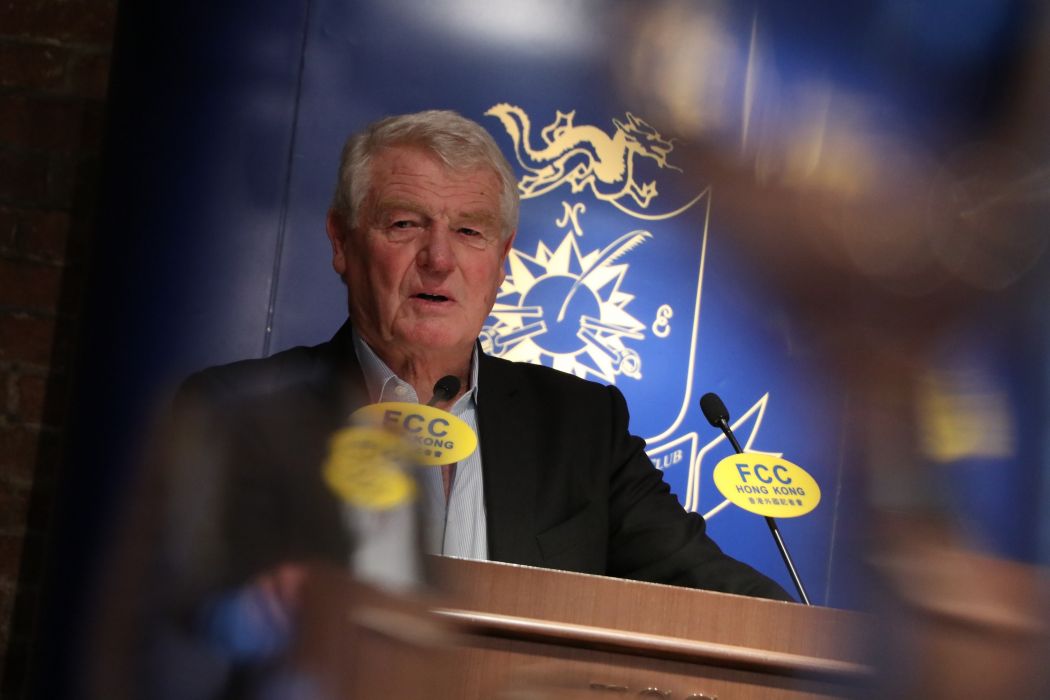On Monday, one of Britain’s most distinguished parliamentarians and a long-time friend of Hong Kong published a report. Lord Ashdown, the former leader of the Liberal Democrats and one of the leading proponents of the rights of Hong Kong people at the time of the Handover of Hong Kong, wrote his reflections based on a visit in November for Hong Kong Watch. He articulated genuine concerns that the rule of law, democracy and the human rights of people of Hong Kong are under threat.
The report was not the ravings of a radical politician with an agenda to undermine Hong Kong, but the measured reflections of one of Britain’s most experienced politicians and a long-time friend of Hong Kong. It was not anti-China propaganda, but concludes with Lord Ashdown’s firmly held conviction that ‘it is in the interests of Britain, China and Hong Kong to continue to uphold the rights enshrined at Handover.’

In light of this, I was shocked by the strength and animosity of Carrie Lam’s response on Tuesday morning. Without addressing any of the major concerns raised in the report, she said that the report was ‘totally unfounded and unfair’. This is an inadequate response to serious questions raised by one the UK’s most experienced politicians, particularly given the fact that the Sino-British Joint Declaration remains in force.
Ms Lam described Lord Ashdown’s comments as an ‘attack on rule of law’ in Hong Kong, but failed to mention the balanced way that Lord Ashdown approached the topic. Lord Ashdown repeatedly emphasised that the Hong Kong judiciary is still largely ‘intact and independent’, but also expressed concern that rule of law is under increasing pressure by citing a long list of examples. Foremost among these is the implementation of mainland law at the new West Kowloon high-speed rail terminus. Lord Ashdown is not alone in describing this as a breach of Basic Law. The Hong Kong Bar Association have said that they are ‘appalled’ by a plan which is the ‘most retrograde step to date in the implementation of the Basic Law’. The former head of Hong Kong’s legislature and pro-establishment heavyweight, Jasper Tsang, wrote in a column that the government should “admit frankly” the arrangement does not comply with the Basic Law.

Another example is the case of booksellers who were abducted in 2015, a serious violation of freedom of expression and rule of law. Angela Gui tells me that her father Gui Minhai is still in custody in mainland China over two years later. Lord Ashdown also expressed concerns about the disqualification of lawmakers based upon a ‘reinterpretation’ or modification of the Basic Law by the Chinese government which appears politicised. Such incidents raise justifiable questions about the status of Hong Kong’s rule of law. The rule of law is still intact, but appears under threat.
Ms Lam made no reference in her remarks to democracy in Hong Kong, despite it being a major focus of Lord Ashdown’s report. Lord Ashdown said in his report that ‘despite being promised in Hong Kong’s Basic Law, there is still a considerable way to go before universal suffrage is realised in Hong Kong.’ He described the functional constituencies as ‘the worst legacy left behind by Britain’, saying that:
‘The functional seats were acceptable in the transition but should gradually be removed. They are a major barrier to the realisation of universal suffrage in Hong Kong.’

He continued to highlight that recent changes to the rules of the Legislative Council have undermined Hong Kong’s limited democracy.
Contrary to Carrie Lam’s allegation that this is ‘foreign meddling’, Lord Ashdown’s report reflects the extension of a hand of friendship and the commitment on the part of British people to honour the international treaty signed in 1984. Lord Ashdown has repeatedly said to me that he believes it is in the interests of both Britain, China and the people of Hong Kong for the rights protected by the Sino-British Joint Declaration and Hong Kong Basic Law to be upheld. That includes all of the rights laid out in the United Nation’s International Covenant for Civil and Political Rights, as is stipulated by Article 39 of Hong Kong’s Basic Law.
At this critical juncture in Hong Kong politics, with the legislation of Article 23 potentially on the horizon, he believes that this is a time when all signatories to the Sino-British Joint Declaration must reaffirm their commitment to upholding human rights in Hong Kong and ensuring the gradual transition towards democracy. I am pleased that the UK Foreign Secretary, Boris Johnson, has communicated his commitment to ‘one country, two systems’ at multiple points in the last year.

In the conclusion of her statement, Carrie Lam said that she has: ‘time and again stressed that Hong Kong’s core values are rule of law and independence of the judiciary’. I am very pleased to hear her affirm the vital importance of these two pillars of Hong Kong’s society. Hong Kong Watch exists to be a friend to Hong Kong, and we exist to protect these core values, alongside other rights enshrined in the Sino-British Joint Declaration. If Carrie Lam is sincere in her desire to protect Hong Kong’s rule of law and judicial independence, then we hope that we will be able to have a constructive working relationship with her administration as we stand in solidarity with the people of Hong Kong.
